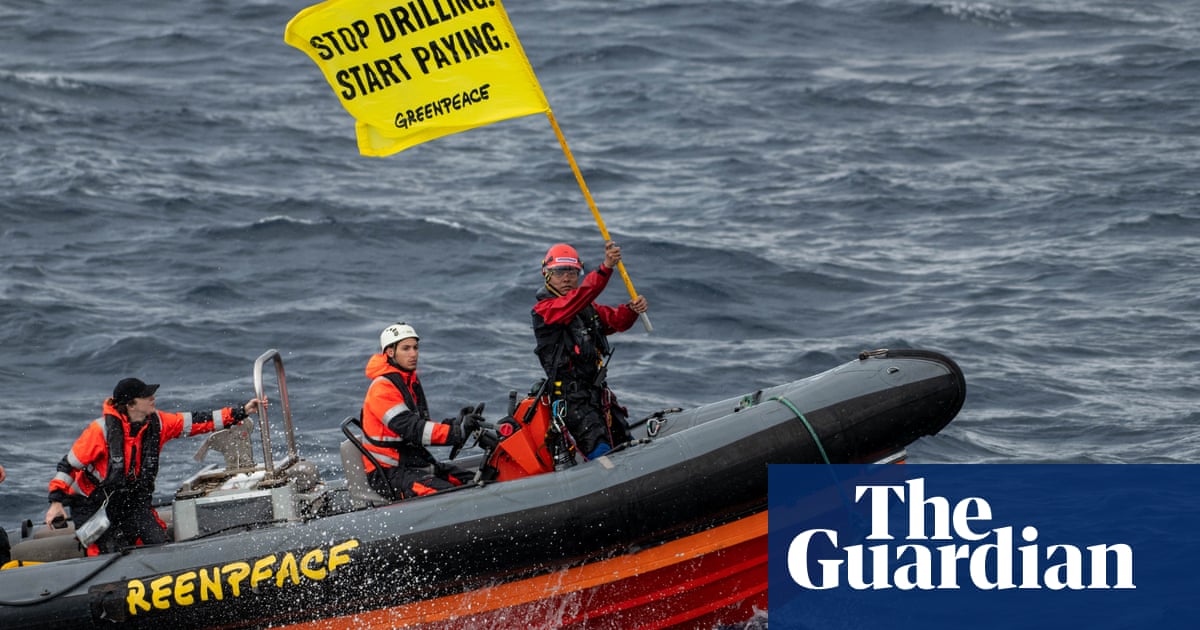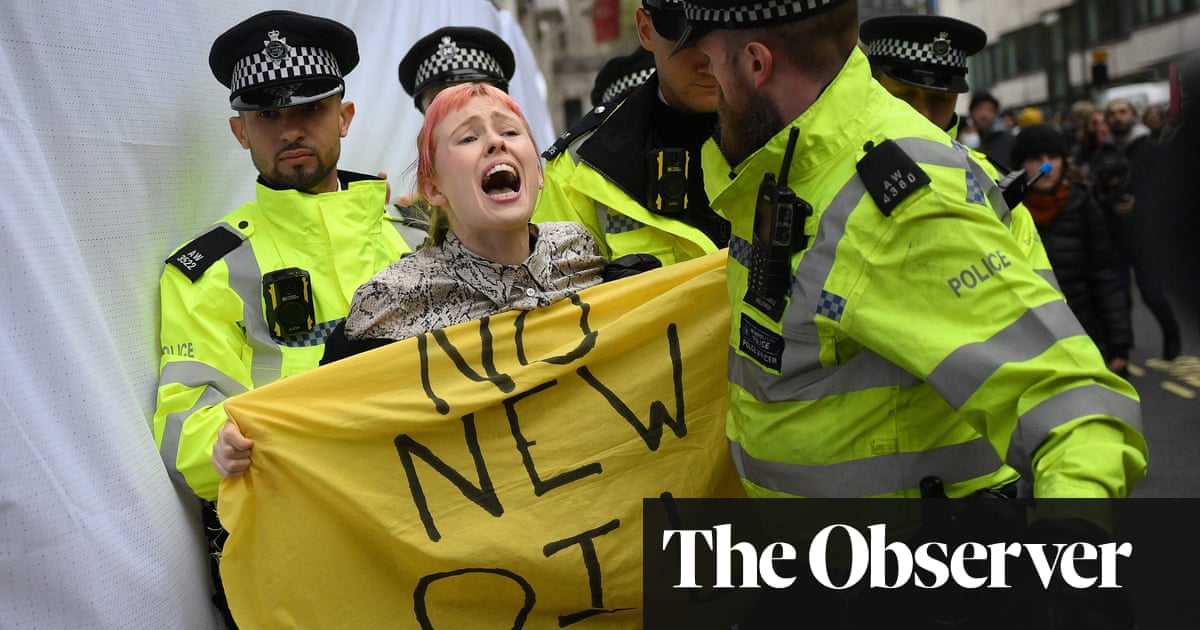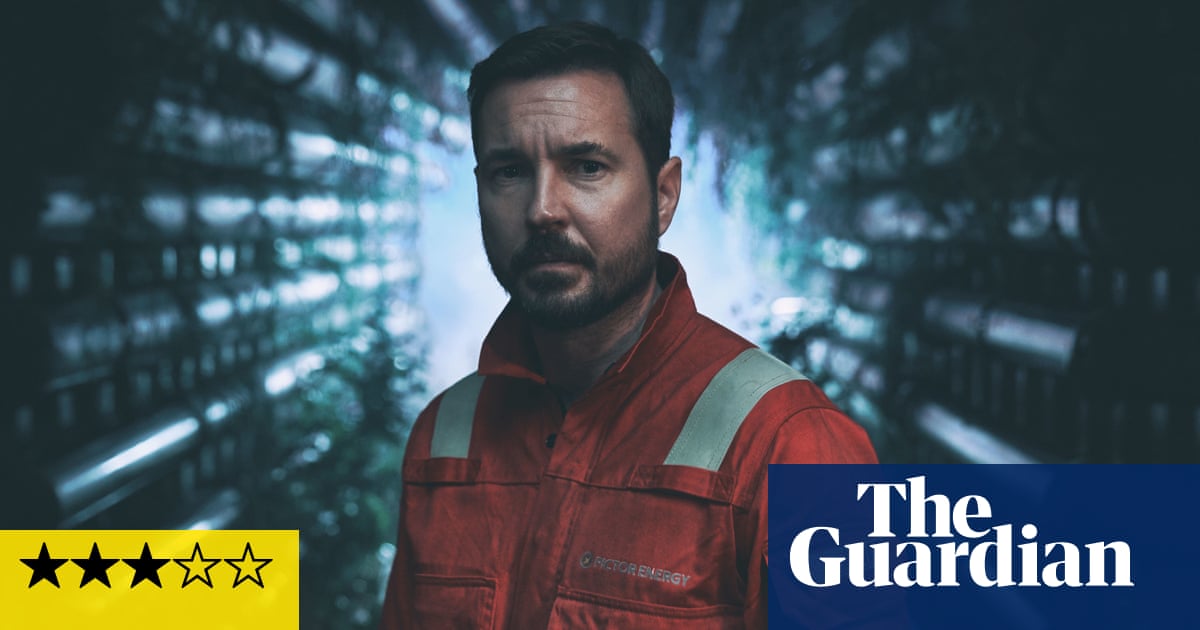
Greenpeace has been fined £80,000 after a Scottish court found it guilty of the “wilful defiance” of a court order banning it from occupying a North Sea oil rig.
Lady Wolffe, sitting in the court of session in Edinburgh, said Greenpeace UK had deliberately broken an interdict, or injunction, against occupying a platform owned by the US contractor Transocean in June 2019.
She said its breaches of the injunction were so serious she would be justified in jailing John Sauven, Greenpeace UK’s executive director, for up to two years or imposing a suspended sentence. He orchestrated the action from the start, knowing he was breaching a court order.
But Wolffe said she would show leniency and instead fined Greenpeace £80,000, plus paying Transocean’s substantial legal costs, which will be decided at a later hearing.
The case follows a series of climate protests by Greenpeace against North Sea oil drilling by Shell and BP last year, which involved occupying rigs and attempting to obstruct their journeys to North Sea oil fields.
In June 2019, its activists occupied a Transocean rig, the Paul B Loyd Jr, contracted to BP in the Cromarty Firth north of Inverness. BP and Transocean won an emergency interdict on 14 June that Greenpeace ignored, putting two new protesters on to the platform.
After its activists were taken off the rig by police, the rig began travelling to the Vorlich field but was shadowed by Arctic Sunrise, a vessel operated by Greenpeace International. Two smaller Greenpeace speedboats carrying 10 activists then breached a 500-metre exclusion zone around the rig.
Wolffe dismissed Greenpeace’s claims its protests were a conscientious act, using peaceful civil disobedience as protected by the European convention on human rights on the grounds of freedom of expression and freedom of peaceful assembly.
Its action breached article 2 of the convention, which upholds a court’s authority, and article 11.2, which protects the rights and freedoms of others, in this case Transocean. She said the convention did not protect coercive conduct such as Greenpeace’s occupation. “It is fundamental to the rule of law that court orders are obeyed,” she said.
Sauven said Greenpeace was disappointed by Wolffe’s ruling. “We stand by our reasons for taking action to stop BP’s reckless drilling, which is driving us deeper into the climate emergency,” he said.
“We will now press on with our challenge to get BP’s permit completely quashed so that BP cannot drill for new oil in the North Sea and further wreck our climate”
In a ruling that will have important implications for Greenpeace and other direct action campaigners, Wolffe also rejected its claims that it could not be held accountable for the actions of individual activists, who it argued were volunteers acting on their volition.
One of those arrested by police on the rig on 14 June was Andrew McParland, a Greenpeace UK director, who later pleaded guilty to unlawfully occupying the rig and obstructing Transocean’s lawful activities.
Wolffe said it was very clear Greenpeace directed, organised, funded and supplied the protests and was therefore entirely liable for its consequences. “There is no doubt that Mr Sauven was acting in his capacity as executive director of Greenpeace; he retained overall control and could have ended the action at any point,” she said.
“I find that the conduct of the volunteers and Greenpeace members, whose actions were essentially facilitated by Greenpeace, are to be treated as acts for which Greenpeace are responsible.
“I therefore find it established beyond reasonable doubt that through that conduct, Greenpeace have exhibited wilful defiance of the order.”












